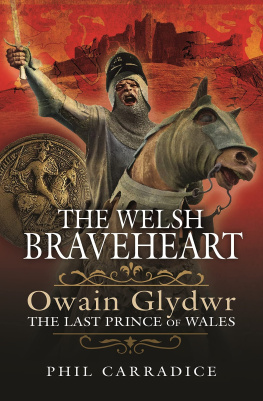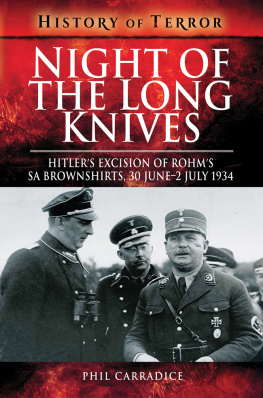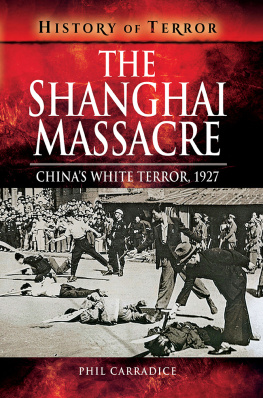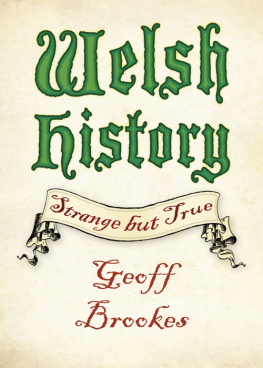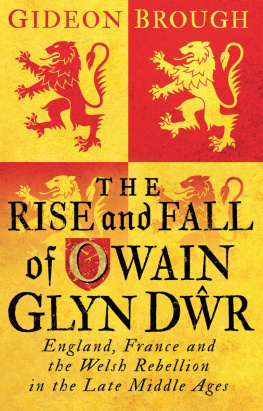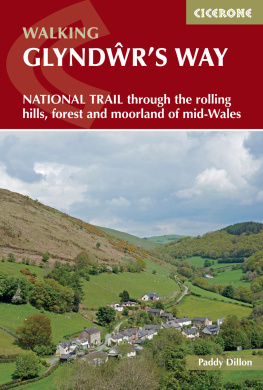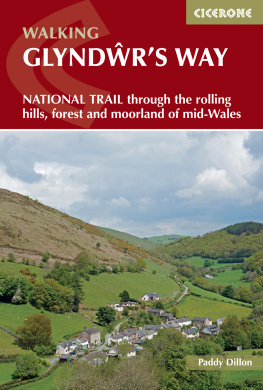THE WELSH BRAVEHEART
THE WELSH BRAVEHEART
OWAIN GLYDWR, THE LAST PRINCE OF WALES
PHIL CARRADICE
First published in Great Britain in 2022 by
PEN AND SWORD HISTORY
An imprint of
Pen & Sword Books Ltd
Yorkshire Philadelphia
Copyright Phil Carradice, 2022
ISBN 978 1 39900 265 3
ePUB ISBN 978 1 39900 266 0
mobi ISBN 978 1 39900 266 0
The right of Phil Carradice to be identified as Author of this work has been asserted by him in accordance with the Copyright, Designs and Patents Act 1988.
A CIP catalogue record for this book is available from the British Library.
All rights reserved. No part of this book may be reproduced or transmitted in any form or by any means, electronic or mechanical including photocopying, recording or by any information storage and retrieval system, without permission from the Publisher in writing.
Pen & Sword Books Limited incorporates the imprints of Atlas, Archaeology, Aviation, Discovery, Family History, Fiction, History, Maritime, Military, Military Classics, Politics, Select, Transport, True Crime, Air World, Frontline Publishing, Leo Cooper, Remember When, Seaforth Publishing, The Praetorian Press, Wharncliffe Local History, Wharncliffe Transport, Wharncliffe True Crime and White Owl.
For a complete list of Pen & Sword titles please contact
PEN & SWORD BOOKS LIMITED
47 Church Street, Barnsley, South Yorkshire, S70 2AS, England
E-mail: enquiries@pen-and-sword.co.uk
Website: www.pen-and-sword.co.uk
Or
PEN AND SWORD BOOKS
1950 Lawrence Rd, Havertown, PA 19083, USA
E-mail: Uspen-and-sword@casematepublishers.com
Website: www.penandswordbooks.com
Contents
Acknowledgements
Grateful thanks to so many people, not least that blithe and benign spirit who, by some incredible piece of fate, placed me in Glyndwr House back in my early days at secondary school.
Other thanks to:
My father, God bless him, who in my teenage years spent hours debating and arguing with me over my hero, Glyndwr, and, being a good Scot, his all-time idol, William Wallace. I could never convince him who was most important and I doubt if I could do so even now. But thanks anyway, Dad, great days, great boost to the imagination.
Trudy, my inspiration hard to believe its almost five years since you left us. Youre always there, sweetheart, in my head, at my shoulder, whenever I write.
My archer neighbour, Mat Howard, for his interest in the book and his knowledge of the archers craft not to mention his introduction to the art of toxophily and the loan of several volumes dedicated to the subject.
Roger Mac, my rugby playing comrade and school friend from Pembroke Dock. He was in Picton House, as opposed to me in Glyndwr, which meant that we clashed many times in house matches and seven-aside tournaments. Now his knowledge and skill with technology has yet again kept me going bet you never thought, Rog, all those times you ground my head into the mud that youd end up helping a Glyndwr boy out of yet another hole in the ground!
Introduction
Owain Glyndwr is symbolic of the Welsh desire for freedom and for independence, but like all great superheroes, he is also a man of mystery.
At this distance in time he can be little more than a briefly glimpsed figure who flits across the imagination and the senses like a wraith, like a wisp of autumn smoke on the hillside. Very few primary source materials from the period when he was active have survived and those that do exist are usually subjective in the extreme.
As a result of this absence the documents which might have put flesh on his bones even down to the date of his birth and death are few and far between. And that, of course, means that in recounting the life of a man who remains Waless greatest hero it is hard to know where history ends and legend begins.
That does not make his story any less fascinating. For nearly twenty years this capable, cultured and educated Welshman terrified the inhabitants of the British countryside, from Pembroke in the west to London in the east, from the northern territories of Henry Percy to the southern coast of England. Children were sent to bed at night with the warning that if they did not go quickly to sleep or if they transgressed in any way the terrible and monstrous Owain Glyndwr would come to get them! He never did but the fear remained.
And yet he was not just the big, bad hero of childrens imaginations. He formed an alliance with France and held court in one of the most picturesque castles in the country. He encouraged poetry and verse, sponsored musicians and artists, and was a lover of culture and tradition.
Owain Glyndwr called a Welsh Parliament, not once but twice, and cut a swathe through the forces of some of Englands greatest military commanders. He forced the king of England to assemble several huge armies in a futile attempt to track him down and kill him. He did not achieve any of that through a love of literature and the arts; he did it through dogged determination, through relentless ruthlessness, through military campaigns and more than a fair share of brutality. Christ, Splendour of God, I beseech you destroy Glyndwr, prayed a monk from St Albans. He was not alone in his request.
Hopefully, it will soon become clear that this book is one of popular history rather than a dull academic tome. It is meant to be read and to be enjoyed.
The primary source materials that do exist, and which have been used here to substantiate the text, are the same materials that have been employed by researchers and scribes for many centuries past. The facts are the same, only the interpretations differ maybe.
Glyndwr has been much written about. In fact and fiction his story and his deeds have regularly appeared in print, and many men and women, the present author included, have expressed their opinions on this last true Prince of Wales opinions on him as a man and on his significance as a national figure. I offer no apologies for adding another tome to the canon and hope that it is still an accurate depiction of Owain Glyndwr, his motives and his aims.
It is not possible to look at Glyndwr in isolation. We need also to consider the times in which he lived and the physical state of the land in those years. Then there are the inevitable loyalties and discords between men, emotions which helped formulate and guide affairs of state. Above all there is the motivation of great magnates and peasants, motivations that shaped and directed the events of this turbulent and dramatic time. All of these factors and many more are important elements in the story of Owain Glyndwr.
He was always a man of contradictions. He aroused deep emotion, feelings of love or hate in everyone he met or encountered on his life journey. But even then his character was such that slivers of contrary emotion, about as far removed from peoples original stance and feelings as the moon, still managed to find their way into their opinions and impressions of the bandit prince. The medieval chronicler Adam of Usk remains a classic example: As a Welshman, Adam takes special notice of events in his native country, and his account of the progress of Glyndwrs rebellion contains many details of value. Although he speaks of the national hero and his following with some contempt, at the same time he evinces a natural sympathy with the sufferings of his countrymen at the hands of the invading Englishmen.
Perhaps that dichotomy of emotion is one reason for the continued fascination with Owain Glyndwr. He is a truly three dimensional character and the opinions of one writer or reader will be as valid as the next. There is no right or wrong when you look at the career of the man.
Next page
